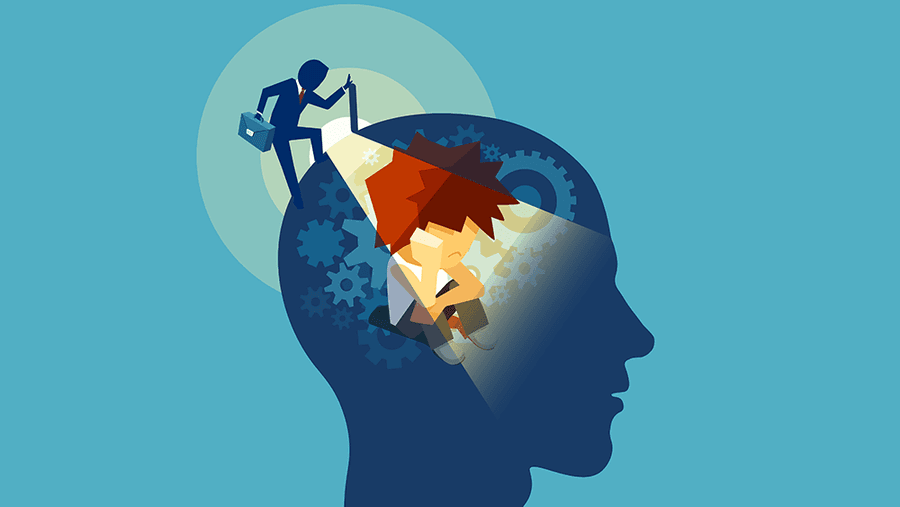What Personality Theories in Psychology May Tell You About Yours
Curated from: verywellmind.com
Ideas, facts & insights covering these topics:
7 ideas
·11K reads
41
Explore the World's Best Ideas
Join today and uncover 100+ curated journeys from 50+ topics. Unlock access to our mobile app with extensive features.
Personality Psychology: Important Terminology
- Classical conditioning: A behavioural technique where a natural stimulus is paired with a previously neutral stimulus. The previously neutral stimulus eventually cause the response without pairing it to the natural stimulus.
- Operant conditioning: A behaviour training technique where punishments or reinforcements influence behaviour.
- Unconscious: The container for feelings, thoughts, urges, and memories.
- Id: The personality component made up of unconscious psychic energy used to satisfy basic urges, needs, and desires.
- Ego: The unconscious part of the personality that moderates the id's demands, the superego, and reality.
- Superego: The part of personality composed of our internalised ideals that comes from our parents and society.
496
2.48K reads
Defining Personality
While we often talk about personality, psychologists disagree on what exactly constitutes personality.
Personality is then broadly defined as the characteristic patterns of thoughts, feelings, and behaviours that originate within the person and make a person unique. It is what makes you, you.
412
1.87K reads
Key Characteristics of Personality
- Personality is organized and consistent.
- Personality is generally stable, but the environment can influence it. A shy personality in social situations might take charge and be more outspoken in an emergency.
- Personality causes behaviours to happen. You react to your environment based on your personality.
409
1.57K reads
Personality Psychology: Research Models
- Experimental methods are used by researchers to control and manipulate the variables of interests and then to measure the results. The ideas are internal, abstract, and difficult to measure.
- Case studies and self-report methods. Case studies rely on the observer's interpretations, and self-report methods depend on the memory of the individual of interest. These methods are highly subjective.
- Clinical research relies on information collected from clinical patients throughout treatment. This research is highly subjective.
384
1.18K reads
Personality Psychology: Major Theories
- Biological Theories suggest genetics are responsible for personality traits.
- Behavioural Theories suggest that personality is the result of interaction between the individual and the environment.
- Psychodynamic Theories of personality emphasize the influence of the unconscious mind and childhood experiences on personality.
- Humanist Theories emphasize the importance of free will and individual experience in the development of personality.
- Trait Theories think personality is made up of several broad traits.
429
1.23K reads
Trait Theories
A trait is a stable characteristic or "blueprint" that causes specific behavioural patterns.
- The three dimensions of personality: extroversion, neuroticism, and psychoticism.
- Later researchers suggested five dimensions of personality (known as the Big 5 theory): openness, conscientiousness, extroversion, agreeableness, and neuroticism.
415
1.45K reads
Famous Figures in Psychology
- Sigmund Freud: He was the founder of psychoanalytic theory. His theories emphasised the unconscious mind, childhood experience, dreams, and symbolism.
- Erik Erikson: He was an ego psychologist. His theory of psychosocial stages describes the development of personality throughout the lifespan.
- B.F. Skinner: He was a behaviourist and known for his research on operant conditioning and schedules of reinforcement.
- Sandra Bem: She developed a gender schema theory to explain how society and culture transmit ideas about sex and gender.
- Abraham Maslow: He was a humanist psychologist and developed the hierarchy of needs.
- Carl Rogers: He was a humanist psychologist and believed people have a drive to fulfil the individual potential that motivates behaviour.
434
1.21K reads
IDEAS CURATED BY
Vihaan Das's ideas are part of this journey:
Learn more about personaldevelopment with this collection
Understanding the psychological rewards of bad habits
Creating new habits to replace old ones
Developing self-discipline
Related collections
Similar ideas
8 ideas
The 7 Major Schools of Thought in Psychology
verywellmind.com
7 ideas
The 7 Major Schools of Thought in Psychology
verywellmind.com
7 ideas
Freud's Id, Ego, and Superego Explained
thoughtco.com
Read & Learn
20x Faster
without
deepstash
with
deepstash
with
deepstash
Personalized microlearning
—
100+ Learning Journeys
—
Access to 200,000+ ideas
—
Access to the mobile app
—
Unlimited idea saving
—
—
Unlimited history
—
—
Unlimited listening to ideas
—
—
Downloading & offline access
—
—
Supercharge your mind with one idea per day
Enter your email and spend 1 minute every day to learn something new.
I agree to receive email updates

